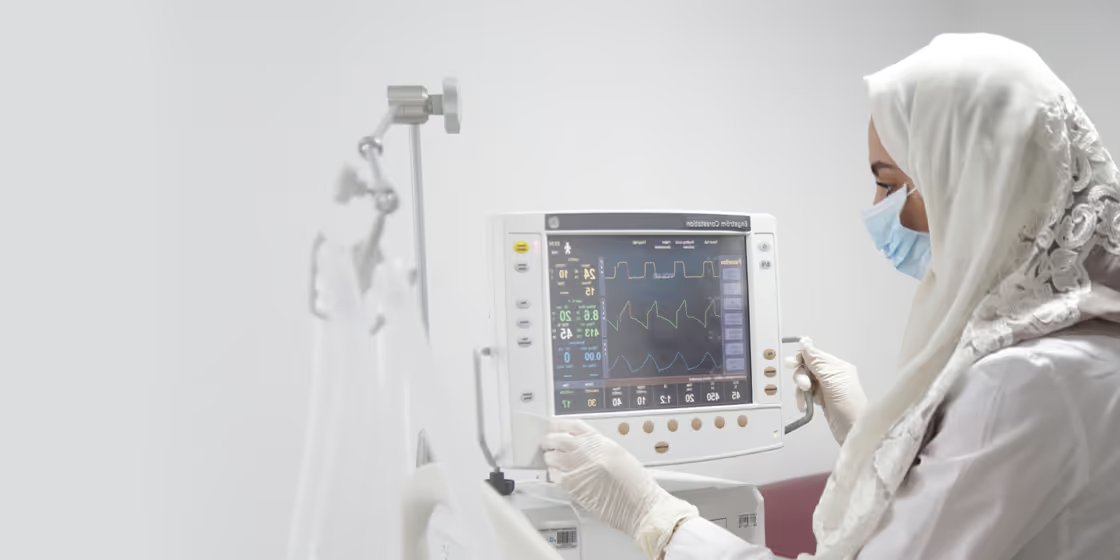Before you continue
By clicking “Accept All”, you agree to the storing of cookies on your device to enhance site navigation, analyze site usage, and assist in our marketing efforts.

The BSN program depends on the study of both scientific and humanity aspects that will provide the foundation for continuous development in one’s education and career. In addition to that, the nursing program reflects the recent changes int he roles of our healthcare providers to prepare students to meet our country’s high demand.
Through different teaching and learning strategies, including curricular and extra-curricular activities to achieve the program learning outcomes in all areas. This includes interactive lecture, small group discussion, case-based learning, team-based learning, assignment, tutorials, flipped classes, research activities, students prepared Presentations, case-based learning and reflection.
Through direct assessment method and indirect assessment method, direct assessment method includes written exams (MCQs, EMQs and Essay),assignment evaluation using rubrics, presentation evaluation using rubrics, portfolio (research activities, community services activities assignment, case study and reflection), OSPE. Clinical portfolio for the clinical part of the course includes different types of workplace-based assessment like (Case-Based Discussions, Mini CEX (Clinical Evaluation Exercise) and DOPS (Direct Observation of Procedural Skills). While in indirect assessment method includes Course Evaluation Survey (CES), Graduates Survey, & Employer Satisfaction Survey.
(Available for the Bachelor of Science in Nursing – BSc Nursing Program)
The "DAAM" Nursing Scholarship Program is designed to support students pursuing a Bachelor of Science in Nursing (BSc Nursing), as part of Fakeeh College for Medical Sciences’ commitment to strengthening critical healthcare professions and addressing the increasing demand for qualified nursing personnel in the local healthcare sector.
This scholarship aims to reduce the financial burden on students, promote academic continuity, and encourage excellence in nursing education. Under the terms of the program, students who are later employed by the Fakeeh Care Group will have a portion of their monthly salary allocated toward repayment of tuition fees.
By linking educational support with career development, the DAAM program ensures a sustainable pathway for students to advance in both academic and professional spheres within the healthcare system.
Upon successful completion of the requirements for the Bachelor of Nursing Program, the graduates can apply for “Saudi Nursing Licensure Exam (SNLE)” from the Saudi Commission for Health Specialist (SCFHS) to become nurse specialist, which may work in hospitals, clinics, primary health centers, home health care, schools, companies, and research institutions. In addition, graduates may seek specializations to advance their careers through Postgraduates Studies. Also, graduates would have the knowledge, skills, and values to be eligible to apply for an academic position such “lecturer”.
A nurse specialist will be responsible to care for patients and facilitate their speedy recovery. Also, graduates will be responsible for educating patients and their families on prevention and healthy habits. There are different areas of clinical areas that nursing graduates may practice at the hospital including: Medical-Surgical unit, Emergency Room, Pediatric unit,Obstetrics and Gynecology unit, Intensive Care unit, Neonatal Intensive CareUnit, Operation Rooms, Recovery Room, Isolation Floor, with additional training and experience, Nurse Specialist can become a department charge nurse or unit nurse manager or research center.
All students are invited and encouraged to constantly meet with career counselors assigned by the Student Career and Alumni Unit (SCAU). Student career counseling is a process that helps students to know and understand their skills, abilities, and interests, and how it relates to the workplace in order to make an appropriate decision concerning their future career path. It is a dynamic and collaborative process between a faculty staff member and student, focused on the student’s needs and goals.